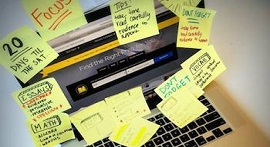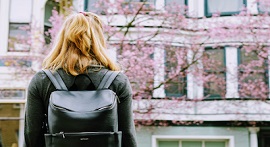Academics
Columbia University, the Ivy League’s New York City office, has been around for more than 250 years, providing prestige, rigorous academics, a strong alumni network, and a multitude of opportunities to its students. As intimate spaces carved out of the larger university, Columbia College and The Fu Foundation School of Engineering and Applied Science throw a “vast amount of resources” at its students, with benefits that “extend from clubs to study abroad programs [to]...proximity to one of the greatest cities in the world.” Columbia is “all about building intelligent [and] confident students who are ready for the workplace,” and there are “many opportunities to satiate intellectual curiosity.” The school’s Core Curriculum ensures students leave with a breadth of knowledge, and “everyone is smart in some way.”
Though some students have a bad teacher or two, Columbia professors are “fantastic in both their leadership in their field as well as in their interest in teaching students,” and if “students carefully select which classes they will take they can find professors they like.” The academics here “are truly great” and students “always know you’re being taught by people at the forefront of their fields.” Columbia attracts a very specific type of student “who is devoted to receiving a true liberal arts education in a variety of subjects,” but those who go here shouldn’t expect to have knowledge handed to them on a platter: “It is up to the student to get the most out of a class,” says one.
Student Body
This collection of “very ambitious” students is “not only extremely intelligent, but also passionate about everything they do.” This group is “diverse in every sense of the word,” from race to sexuality to age, and everyone has “a high awareness of the connections between academic, personal, and social issues.” People “aren’t afraid to speak out against what they think is wrong”; activism is “essential to the Columbia experience,” and in fact, “it is encouraged by the school itself.” This go-getting crowd tries to do it all, “taking on 5 to 6 classes per semester and holding multiple jobs and internships and leadership positions”; as a result, Columbia does have a bit of a “stress culture,” due to the fact that “everyone here really wants to succeed.” While it “can be competitive for programs,” most students find people here “to be more kind than shrewd.”
Campus Life
When it comes to free time, there’s no question as to where students turn: New York City, where there are “countless things to do for fun.” The “clubs downtown are always a late night option as are the Broadway shows and comedy clubs near Times Square” and “from shopping in Soho to visiting museums to trying out a new restaurant in Midtown, there’s literally nothing you can’t do here.” That’s not to say that students don’t stay on campus; people often hang out in dorms and sometimes this turns into a social event itself. “I can walk into my floor lounge at any moment for homework help on anything from Chinese to econometrics, and upon doing so I inevitably wind up having a mind-blowing intellectual discussion of some sort,” says a student. The “Monday to Thursday grind is usually pretty tough”: people go to classes, do homework and readings, and “try to fit in time with friends in between all the chaos.” Weekends are more fun, and Columbia has “a great arts initiative which is perfect for getting [tickets] cheaper” as well as a World Leaders Forum where speakers historically have included “presidents and prime ministers from countries far and wide.”




